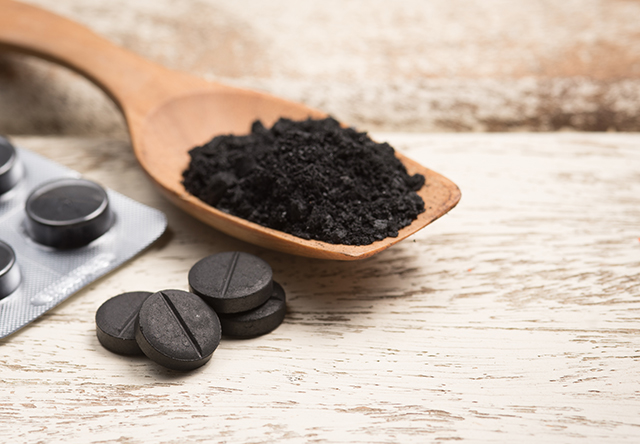Going nuts about coconuts: Activated charcoal from coconut shells is one of the best ways to detox
08/11/2018 / By Ralph Flores

“The world is a dangerous place to live in,” starts a famous quote. Of course, it’s not just the concept of evil that makes it a perilous ordeal: The staggering amount of toxins that a person is exposed to every day is enough to make anyone wonder if there’s a way out.
In recent times, however, there has been an increased interest in natural options to get rid of these toxins. This interest, of course, has caused a lot of treatments to pop up, especially those that claim to cleanse the body of toxins – more popularly known as detox procedures.
In her video, Christine Regan Lake of Holistic Health and Wellness shares her top pick among all detoxifiers: activated charcoal made from coconut shells.
“Coconut shell activated charcoal is the best detoxifier for your body,” she adds.
You can watch the full video clip at Brighteon.com below:
The lowdown on activated charcoal and its benefits
Activated charcoal isn’t like the ones you use for grilling. For starters, it’s burned without oxygen to create char. It then goes through another round of high-temperature heating, after which it’s exposed to certain gases to make it porous – completing the “activation” procedure. Some materials used for activated charcoal include bamboo, wood, coal, and coconut shells.
A defining characteristic of activated charcoal is that it’s porous. This gives it a sponge-like property, allowing it to bind with any substance and soak up various chemicals. Interestingly, regular charcoal is carcinogenic, but activated charcoal is non-toxic, plus it doesn’t emit a distinct smell or taste, making it ideal in filtration products. It’s also used in emergency services, where it’s used to treat accidental poisoning and drug overdose. This reduces the likelihood of the body absorbing the chemicals since it binds with the toxins and safely transports it out of the body.
Mother Nature's micronutrient secret: Organic Broccoli Sprout Capsules now available, delivering 280mg of high-density nutrition, including the extraordinary "sulforaphane" and "glucosinolate" nutrients found only in cruciferous healing foods. Every lot laboratory tested. See availability here.
It’s also used in oral care, as activated charcoal can remove harmful substances like bacteria from the mouth. It can also bind with substances that stain the teeth (like coffee), which can make them whiter after a couple of uses. To get this benefit, dap a wet toothbrush in high-quality charcoal and brush gently – activated charcoal is still an abrasive, after all.
For Lake, she suggests taking in 500 mg of activated charcoal twice a day: once when you wake up and another before going to sleep. She also noted that this should be done on an empty stomach. While activated charcoal is noted to soak up even water-soluble vitamins (like vitamin C), she noted in the video that coconut shell activated charcoal won’t pull minerals out of the body.
If you’re a starter with activated charcoal, she recommends taking it slow and building up as you go.
Starting out with your detox procedure works in your favor as well – given that you’re living with toxins around you. Scientists, in particular, have been increasingly concerned with the number of environmental contaminants that people are exposed to in a given day. Some of these are even known to contribute to obesity, diabetes, endometriosis, and a slew of other diseases.
“If you’re breathing on this planet, you are toxic,” Lane explained. This, she continued, is what makes coconut shell activated charcoal such a necessity. “[This] is the best thing that you can do on a daily basis to very simply start detoxifying your body to keep you in good health.” (Related: Activated Charcoal: Keep this Inexpensive Miracle Powder in Your Medicine Cabinet.)
This feature, which talks about coconut shell activated charcoal and its many uses, can be viewed at this link.
Want to learn more about the other benefits of activated charcoal? Follow NaturalCures.news today.
Sources include:
Tagged Under: Activated Charcoal, activation, coconut shell activated charcoal, coconut shells, detox, natural cures, natural remedies, Natural Treatments, oral health, toxins




















